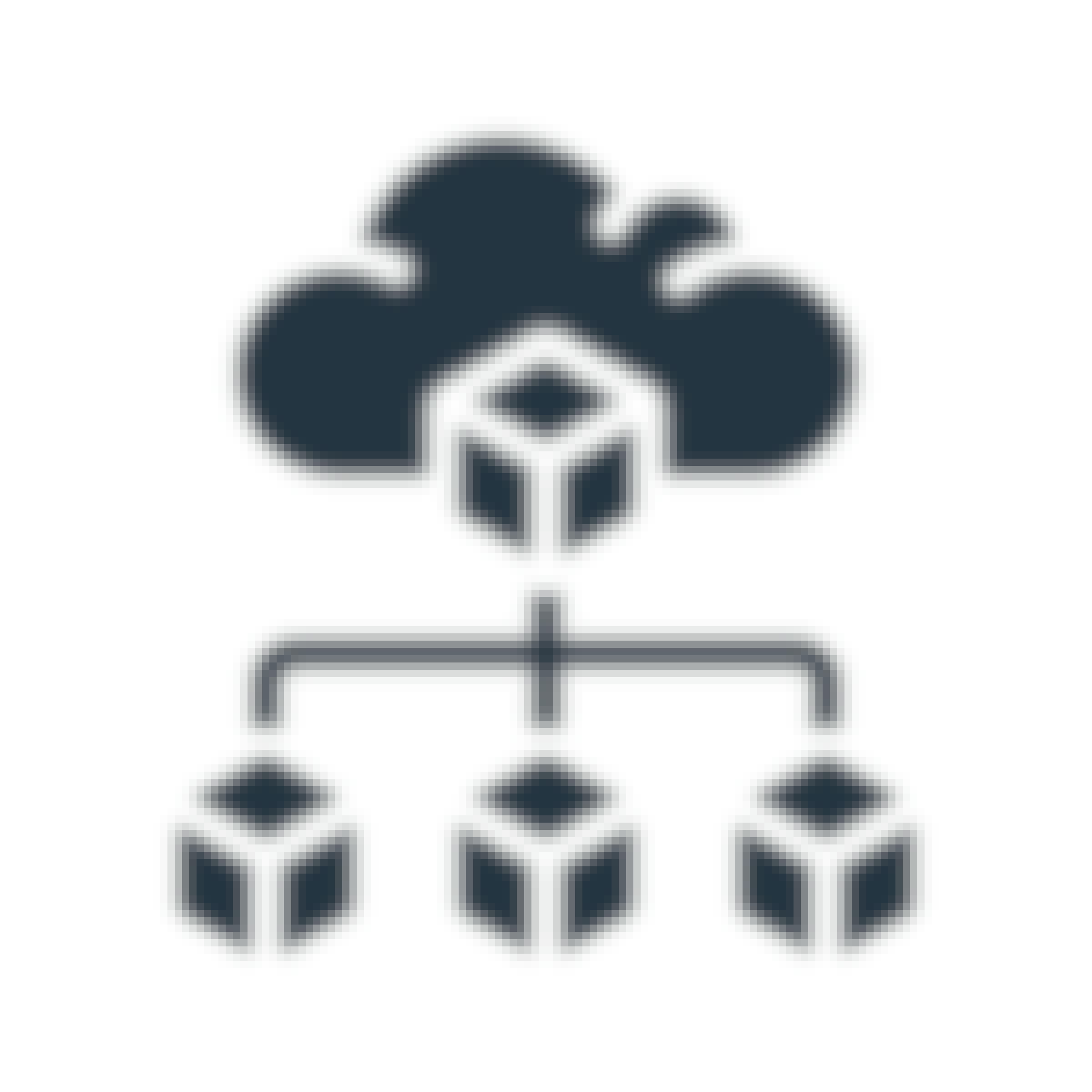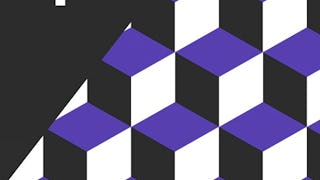- Browse
- Microservices
Results for "microservices"
 Status: Free TrialFree Trial
Status: Free TrialFree TrialSkills you'll gain: Cloud Deployment, Application Deployment, OpenShift, Cloud Applications, Serverless Computing, Microservices, Istio, API Gateway, Restful API, Cloud Computing, IBM Cloud, Kubernetes, Application Development, Software Architecture, Scalability, Flask (Web Framework)
4.6·Rating, 4.6 out of 5 stars396 reviewsIntermediate · Course · 1 - 3 Months
 Status: NewNewStatus: Free TrialFree Trial
Status: NewNewStatus: Free TrialFree TrialSkills you'll gain: Microservices, Scalability, Software Architecture, CI/CD, API Gateway, Systems Architecture, Containerization, Software Design, Serverless Computing, Application Design, Solution Architecture, Docker (Software), Software Design Patterns, Systems Design, Kubernetes, Service Oriented Architecture, Event-Driven Programming, Transaction Processing, Cloud Deployment, Data Management
4.2·Rating, 4.2 out of 5 stars13 reviewsIntermediate · Specialization · 3 - 6 Months
 Status: PreviewPreview
Status: PreviewPreviewSkills you'll gain: Microservices, Google Cloud Platform, Cloud Applications, Spring Framework, Cloud Development, Spring Boot, Database Management, Databases, Software Architecture, Application Performance Management, Service Oriented Architecture, Configuration Management
4.3·Rating, 4.3 out of 5 stars1.4K reviewsIntermediate · Course · 1 - 4 Weeks
 Status: Free TrialFree TrialV
Status: Free TrialFree TrialVVanderbilt University
Skills you'll gain: Microservices, Application Deployment, Software Architecture, Scalability, Service Oriented Architecture, Distributed Computing, Load Balancing, Java, Program Development, Software Design, Maintainability, Dependency Analysis
4.2·Rating, 4.2 out of 5 stars37 reviewsIntermediate · Course · 1 - 4 Weeks
 Status: NewNewStatus: Free TrialFree Trial
Status: NewNewStatus: Free TrialFree TrialSkills you'll gain: Infrastructure as Code (IaC), Istio, Terraform, Kubernetes, Cloud-Native Computing, Serverless Computing, Microservices, DevOps, Amazon Web Services, API Gateway, Scalability, CI/CD, Application Deployment, Cloud Deployment, Restful API, Containerization, Amazon DynamoDB, Prometheus (Software), Cloud Applications, Redis
Intermediate · Specialization · 3 - 6 Months
 Status: NewNewStatus: Free TrialFree Trial
Status: NewNewStatus: Free TrialFree TrialSkills you'll gain: JUnit, Spring Framework, Spring Boot, Java, Apache Maven, Hibernate (Java), Unit Testing, Gradle, Microservices, Application Programming Interface (API), Google Cloud Platform, Simple Object Access Protocol (SOAP), Application Deployment, Development Environment, Cloud Deployment, OAuth, YAML, Restful API, Load Balancing, Configuration Management
4.8·Rating, 4.8 out of 5 stars6 reviewsIntermediate · Specialization · 3 - 6 Months
What brings you to Coursera today?
 Status: NewNewStatus: Free TrialFree Trial
Status: NewNewStatus: Free TrialFree TrialSkills you'll gain: Microservices, Docker (Software), Containerization, API Gateway, Redis, API Design, ASP.NET, .NET Framework, Software Architecture, Microsoft Visual Studio, Software Design Patterns, Cloud-Native Computing, Restful API, C# (Programming Language), Web Services, Application Programming Interface (API), Event-Driven Programming, Integration Testing, Scalability, Web Development
Intermediate · Specialization · 3 - 6 Months
 Status: Free TrialFree TrialV
Status: Free TrialFree TrialVVanderbilt University
Skills you'll gain: Microservices, Spring Boot, Spring Framework, IntelliJ IDEA, Java Programming, Restful API, Object Oriented Programming (OOP), Java, Application Programming Interface (API), Application Deployment, Software Architecture, API Design, Integrated Development Environments, Data Persistence, Scalability, Service Oriented Architecture, Web Applications, Application Frameworks, Software Testing, Object-Relational Mapping
4.3·Rating, 4.3 out of 5 stars64 reviewsIntermediate · Specialization · 1 - 3 Months
 Status: NewNewStatus: Free TrialFree Trial
Status: NewNewStatus: Free TrialFree TrialSkills you'll gain: AI Security, Microservices, Site Reliability Engineering, Failure Analysis, Distributed Computing, Middleware, Failure Mode And Effects Analysis, Continuous Monitoring, AI Workflows, Performance Tuning, Dependency Analysis, Performance Metric, Performance Analysis, Application Performance Management, System Monitoring, Service Level
Intermediate · Course · 1 - 4 Weeks
 Status: Free TrialFree Trial
Status: Free TrialFree TrialSkills you'll gain: DevOps, Agile Methodology, Cloud-Native Computing, CI/CD, Test Driven Development (TDD), Scrum (Software Development), Behavior-Driven Development, Performance Metric, Accountability, Team Oriented, Culture Transformation, Microservices, Cross-Functional Collaboration
4.8·Rating, 4.8 out of 5 stars4.1K reviewsBeginner · Course · 1 - 3 Months
 Status: Free TrialFree TrialStatus: AI skillsAI skills
Status: Free TrialFree TrialStatus: AI skillsAI skillsSkills you'll gain: Prompt Engineering, Large Language Modeling, Cloud Deployment, Software Development Life Cycle, CI/CD, Cloud-Native Computing, Istio, Software Architecture, Node.JS, React Redux, Cloud Computing Architecture, Restful API, Responsive Web Design, Django (Web Framework), Git (Version Control System), HTML and CSS, Server Side, Cloud Computing, Data Import/Export, Engineering Software
Build toward a degree
4.6·Rating, 4.6 out of 5 stars60K reviewsBeginner · Professional Certificate · 3 - 6 Months
 Status: Free TrialFree Trial
Status: Free TrialFree TrialSkills you'll gain: Cloud Computing Architecture, Cloud Services, Cloud Deployment, Cloud Security, Cloud Infrastructure, Cloud Platforms, Cloud Computing, Cloud Storage, Infrastructure As A Service (IaaS), Emerging Technologies, Hybrid Cloud Computing, Virtual Machines, Serverless Computing, Microservices, DevOps
4.6·Rating, 4.6 out of 5 stars7.7K reviewsBeginner · Course · 1 - 3 Months
In summary, here are 10 of our most popular microservices courses
- Application Development using Microservices and Serverless : IBM
- Microservices Architecture: Design Patterns & Principles: Packt
- Building Scalable Java Microservices with Spring Boot and Spring Cloud: Google Cloud
- Microservice Architectures: Vanderbilt University
- Cloud-Native – Microservices, Kubernetes & CI/CD: Packt
- Master Microservices with Spring Boot and Spring Cloud: Packt
- .NET 8 Microservices – DDD, CQRS & Clean Architecture: Packt
- Scalable Microservices for Developers: Vanderbilt University
- Architect Resilient Microservices for AI Success: Coursera
- Introduction to DevOps: IBM
Frequently Asked Questions about Microservices
Microservices is an architectural style that structures an application as a collection of loosely coupled services. Each service is designed to perform a specific business function and can be developed, deployed, and scaled independently. This approach is important because it enhances flexibility, allows for faster deployment cycles, and improves the ability to scale applications efficiently. By breaking down applications into smaller, manageable pieces, organizations can respond more quickly to changing market demands and innovate at a faster pace.
A variety of job roles are available in the microservices domain, reflecting the growing demand for professionals skilled in this architecture. Common positions include Software Developer, DevOps Engineer, Cloud Architect, and Systems Architect. Additionally, roles such as Technical Lead and Solutions Architect are also prevalent, focusing on overseeing microservices implementations and ensuring they align with business objectives. As organizations increasingly adopt microservices, opportunities in these roles are likely to expand.
To work effectively with microservices, you should develop a range of skills. Key competencies include proficiency in programming languages such as Java, Python, or JavaScript, as well as familiarity with frameworks like Spring Boot or Node.js. Understanding containerization technologies like Docker and orchestration tools such as Kubernetes is also essential. Additionally, knowledge of RESTful APIs, cloud platforms, and DevOps practices will enhance your ability to design, deploy, and manage microservices.
There are several excellent online courses available for learning about microservices. For a comprehensive understanding, consider the Scalable Microservices for Developers Specialization or the Microservices Architecture: Design Patterns & Principles Specialization. These programs cover essential concepts and practical applications, helping you build a solid foundation in microservices.
Yes. You can start learning microservices on Coursera for free in two ways:
- Preview the first module of many microservices courses at no cost. This includes video lessons, readings, graded assignments, and Coursera Coach (where available).
- Start a 7-day free trial for Specializations or Coursera Plus. This gives you full access to all course content across eligible programs within the timeframe of your trial.
If you want to keep learning, earn a certificate in microservices, or unlock full course access after the preview or trial, you can upgrade or apply for financial aid.
To learn microservices effectively, start by identifying your current skill level and the specific areas you want to focus on. Enroll in foundational courses that introduce microservices concepts and gradually progress to more advanced topics. Engage in hands-on projects to apply what you learn, and consider collaborating with peers or joining online communities for support. Continuous practice and real-world application will reinforce your understanding and boost your confidence.
Microservices courses typically cover a range of topics, including the fundamentals of microservices architecture, design patterns, and best practices for implementation. You can expect to learn about RESTful APIs, service communication, data management, and deployment strategies. Additionally, many courses address containerization, orchestration, and cloud-native development, providing a comprehensive overview of the microservices ecosystem.
For training and upskilling employees in microservices, consider programs like the RESTful Microservices Using Node.js and Express Specialization or the Cloud Native, Microservices, Containers, DevOps and Agile course. These courses are designed to equip teams with the necessary skills to implement microservices effectively, fostering a culture of innovation and agility within the workforce.










